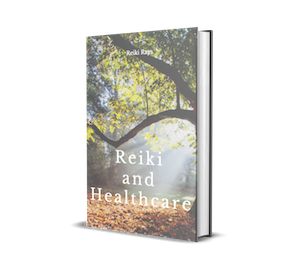Article by Taryn Walker
There are now hundreds of hospitals offering Reiki as complementary care to patients. This is a good indication that Reiki works. But what does it actually mean that Reiki “works”? Can Reiki cure diseases like cancer?
I find it interesting to contemplate the difference between “healing” and a “cure”. Healing is a process of becoming healthy or whole again, whereas a cure is a remedy that alleviates symptoms.
Nowadays there are countless natural cures for cancer. Baking soda, carrot juice, MMS, apricot kernels, honey and turmeric,…the list goes on and on!
Why do they work for some and not for others?
It could be that a cure isn’t always possible if true healing hasn’t occurred. Even if there is temporary relief of symptoms, if an underlying issue remains unconscious, either the symptoms will return or manifest in a different way in our lives.

Image by diego_torres
A person dealing with a cancer diagnosis is likely to find themselves on a very deep healing journey that requires more than a remedy. It requires courageous introspection and the sincere longing to understand the disharmony holistically. This means contemplating imbalances that exist beyond the physical body and developing awareness of possible emotional and mental causes of dis-ease. For many, spiritual and psychological guidance becomes necessary for true healing.
How does Reiki help someone with cancer?
Experiencing Reiki opens a person up to their inner reality. Many patients report that after a Reiki treatment they feel more aware of themselves on a deeper level. There is a sense of feeling connected to a greater purpose, which brings peace and hope.
For a cancer patient, this spiritual opening allows for greater acceptance of the diagnosis and a renewed ability to trust in life’s unfolding. Reiki may or may not be all that is needed, but it helps tremendously, enhancing emotional and mental well-being during the most challenging of times.
On a more physical level, Reiki encourages a person towards balance by activating the natural self-healing response. This makes the body stronger and those who choose conventional treatment are more able to handle the side effects of strong chemicals or radiation. It has also been observed that the amount of chemotherapy administered can be reduced by up to 50% when patients receive Reiki treatments complementarily.
I’ve often met skeptics who lose faith in Reiki when a single treatment fails to cure a disease. This is generally due to a lack of understanding of the healing process and disbelief in the underlying metaphysical causes. It is important for practitioners to be able to explain how Reiki treatments help and to avoid selling Reiki as a miraculous cure for everything.
Reiki may not always act as a cure, but it always offers incredible support for someone on a difficult healing journey. Knowing how to convey this may help to create greater trust in Reiki and make it a treatment that many more would consider as a valuable part of their healing process.
Free eBook download: We’ve created an eBook with our best articles on this topic, and offer it for free to all our newsletter subscribers.


Taryn Walker
Taryn Walker is a traveling Reiki Master Teacher who wishes to inspire people to realise that they are miraculous! She believes that Reiki can reveal our natural ability to heal ourselves and this empowers us to take responsibility for our lives. She works a lot with distant Reiki and loves the way it allows people to experience the illusion of separation. Taryn is grateful for being able to connect with her Reiki clients even while traveling. She usually lives on a little island in Thailand, where she practices and teaches Reiki, but finds ‘home’ wherever she is. Taryn enjoys yoga, nature, creating art, cooking and finding magic in “ordinary” places. Follow her here: reiki-alchemy.com, and alchemyhealing.





Reiki doesn’t cure cancer but it certainly heals the pain , anguish & depression associated with cancer .
And in certain cases it helps in prolonging the longevity of the patients .